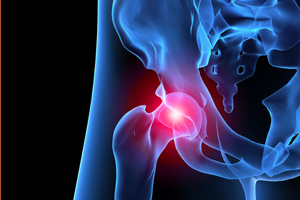
Regulators in the U.K. are reportedly poised to ban the use of metal-on-metal hip implants after finding unacceptably high rates of failure in a review of 17,000 cases.
The proposed ban, which would affect hospitals in the U.K.’s National Health Service, follows a review by the country’s National Institute for Health & Care Excellence that found failure rates as high as 43% for some of the implants, The Telegraph reported.
The NICE recommended that NHS hospitals stop using any implant with failure rates exceeding 5%, which would take virtually every metal-on-metal implant there out of the health system, according to the newspaper. Two metal-on-metal hip implants barely meet the requirement, according to The Telegraph.
Metal-on-metal hip implants came under scrutiny following the high-profile August 2010 recall of DePuy Orthopaedics’ ASR XL acetabular and ASR hip resurfacing systems. Johnson & Johnson pulled the devices off the market after receiving reports that a higher-than-normal number of patients required surgeries to correct or remove defective implants.
Some reports warned that hundreds of thousands of patients may have also been exposed to toxic compounds from metal-on-metal implants, putting them at risk of developing cancer, cardiomyopathy, muscle and bone destruction and changes to their DNA. Since then the controversy has ensnared device makers such Smith & Nephew (FTSE:SN, NYSE:SNN) and Biomet, with personal injury lawsuits piling up even against MoM hip implants that haven’t undergone a recall.
The NICE audit across the pond found that the DePuy ASR device posted a failure rate of 43% after 9 years and also found high failure rates for metal-on-metal hip resurfacing implants, the newspaper reported.
"I think there is a question about whether [the proposed ban] goes far enough, but this is definitely a step in the right direction – it amounts to a ban on most of them," Dr. Stephen Cannon of the Royal National Orthopaedic Hospital told The Telegraph. "The figures speak for themselves – even the best metal-on-metals have four times the failure rate of the rest. This is a really significant problem because these were given to an awful lot of people."

